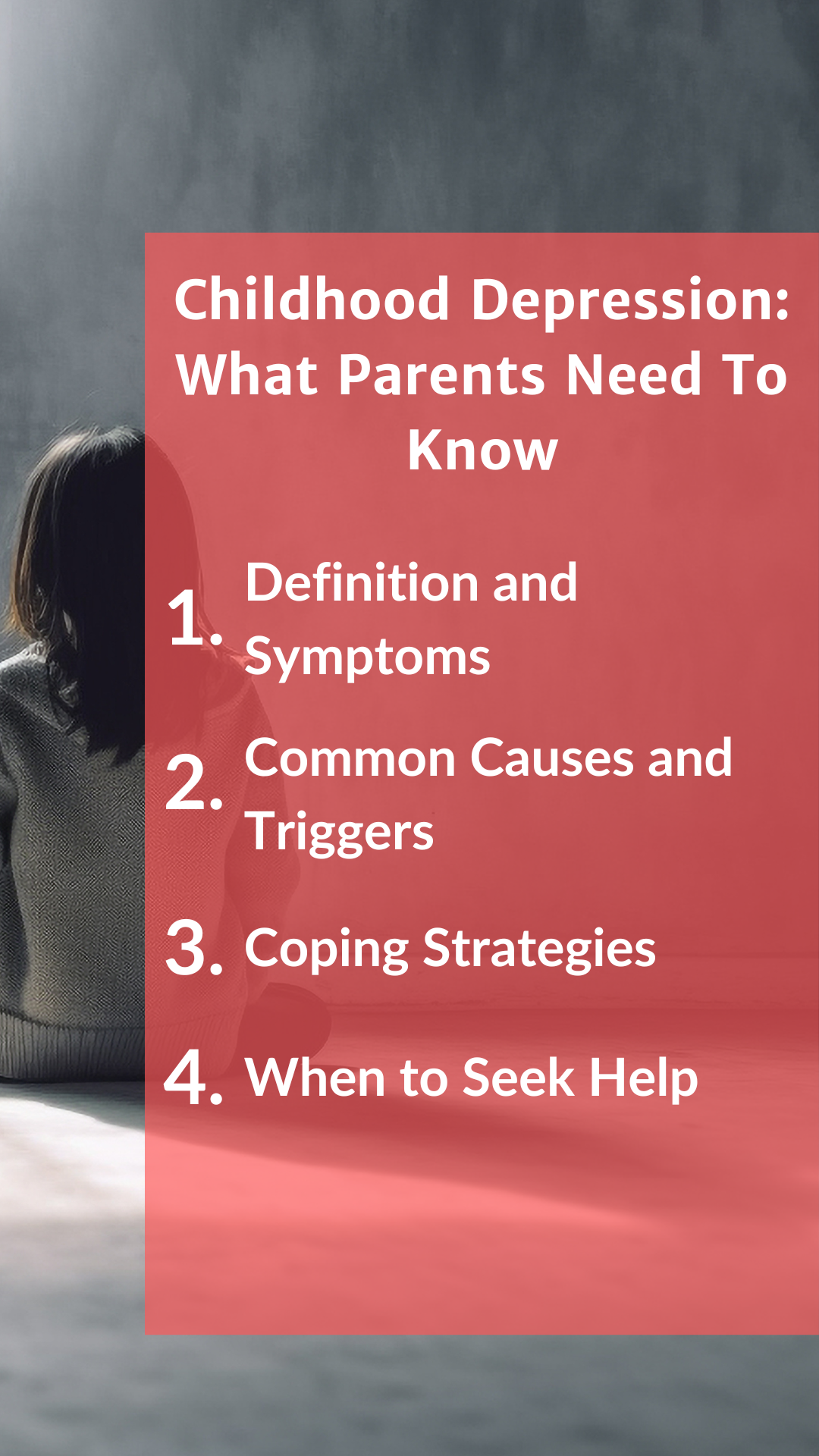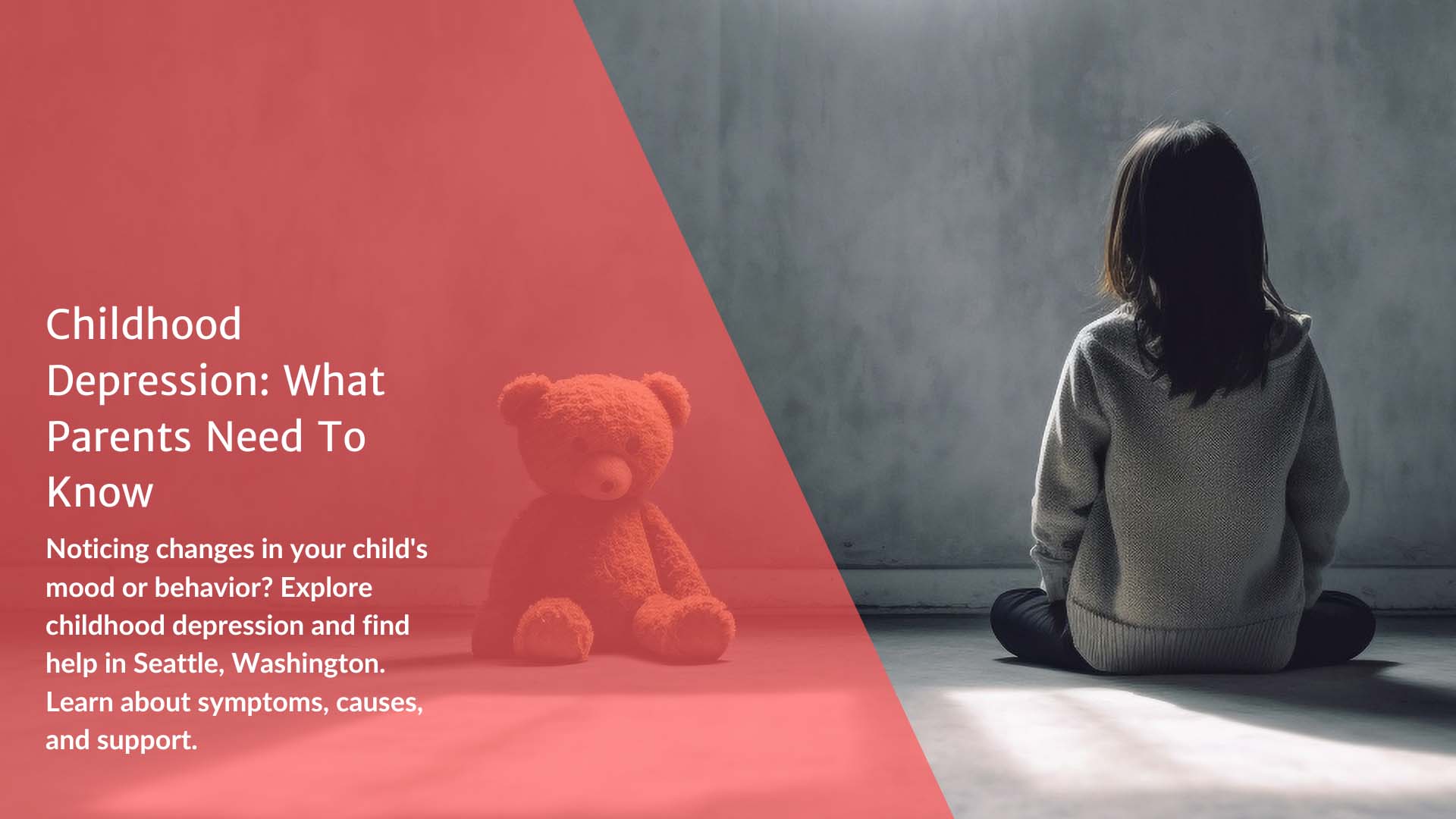Are you noticing a change in your child’s mood or behavior? Perhaps you’ve observed signs of withdrawal, heightened sadness, or increased irritability that have raised concerns. In these moments, it’s entirely natural to experience a mix of emotions, including worry, confusion, and a sense of unease. But when you suspect childhood depression might be at play, it’s crucial to navigate these feelings with understanding and support. To shed light on this important topic, we’ve gathered essential information about childhood depression and finding help in Seattle, Washington. Let’s get right into it.
Understanding Childhood Depression
Every parent or caregiver, at some point, has to deal with the difficult task of watching their child go through emotional turmoil. However, sometimes, it’s not just a “phase” or “typical growing pains.” In some cases, it’s depression, which is a condition characterized by persistent sadness and an unshakeable feeling of heaviness.
Definition and Symptoms
The most important thing to know is that depression isn’t confined to adulthood. Children, too, experience these deep troughs of emotion, though they might express it differently. Instead of the classic symptoms, children’s depression might manifest as irritability, changes in appetite, or a sudden drop in grades. It’s a silent scream for help, often misunderstood or overlooked.
Common Causes and Triggers
And the fact is that depression doesn’t have a single face or root. Rather, it takes shape through a blend of genetic inclinations, environmental influences, and occasionally, the unexpected blows of life’s challenges. Yet, knowing the triggers isn’t about placing blame – it’s the first step toward wrapping arms of understanding and support around a child enveloped in this silent struggle.
Coping Strategies for Parents and Caregivers
As a parent or caregiver, witnessing a child grapple with depression can often leave you feeling powerless and searching for answers. “Why is my child going through this?” or “How can I help?” might be common questions that you ponder. While there’s no one-size-fits-all approach, there are concrete steps and coping strategies that can make a significant difference.
That said, here’s your toolkit, drawing on the strengths you already possess and enhancing them with additional insights and actions.
Engage in Open Dialogue
Communication is a cornerstone. However, it’s not just about talking, but listening – truly listening. If you’ve noticed signs of depression in your child, opening the channels of communication and inviting them into safe, judgment-free conversations is pivotal. It’s a space where feelings aren’t just aired but honored.
Establish Routine and Structure
Depression in kids often disrupts their daily routines. Maintaining a sense of normalcy, structure, and predictability can help combat the chaos that depression often brings. Consistency provides a safety net where the child can feel grounded.
Encourage Physical Activity and Balanced Nutrition
Physical health is intrinsically linked to mental health. Encouraging your child to engage in regular physical activity, even a walk in the park, can alleviate some symptoms of depression. Furthermore, a balanced diet plays a crucial role – it’s not just fuel for the body but for the mind as well.
Foster Connections
Children with depression often feel alone. Encourage them to spend time with family and friends to build connections. Social support can be a powerful force against the waves of depression.
Promote Emotional Expression
Children, especially younger ones, might find articulating their emotions challenging. Encourage various means of expression. For example, art, music, or writing can be powerful channels for them to vent and express their inner turmoil.
Seek Education and Support
As the old saying goes, knowledge is power, so equip yourself with information about child depression. Understanding its nuances can better position you to provide the appropriate support. Additionally, joining support groups for parents can provide insights and shared experiences that are invaluable.
Seek Professional Assistance
If the question “Why is my 11-year-old showing depression symptoms?” lingers in your mind persistently, or if the coping strategies aren’t yielding the desired results, it might be time to seek professional help. After all, therapists and counselors are equipped with the tools and strategies tailored to your child’s unique needs.
Recognizing When It’s Time to Seek Professional Help
Observing your child’s battle with depression can stir a complex blend of feelings, often accompanied by the pressing question, “When should I seek professional help?” Every child’s journey is unique; however, there are certain signs and manifestations of depression that, when persistent or escalating, indicate it’s time to bring in additional support. These include:
Intensifying Symptoms
If the emotional and behavioral changes in your child are becoming more pronounced, or if their ability to function in daily activities is significantly impacted, it’s a clear signal. For example, if a 15-year-old’s depression symptoms intensify to the point where they are withdrawing from friends, family, and activities they once enjoyed, immediate attention is required.
Expressed Feelings of Hopelessness
Feelings of hopelessness, intense sadness, or worthlessness that are openly expressed are red flags. These emotions, particularly when persistent, warrant professional intervention to navigate safely.
Self-harm or Suicidal Thoughts
This is an emergency that requires immediate attention. Any expression of self-harm or suicidal thoughts should be addressed promptly with the help of professionals who are skilled in this sensitive area.
Making that Call for Help
If you’re at the juncture where professional intervention is the next step, it’s okay to feel a mix of emotions. Reaching out can sometimes be tough, but remember, it’s a positive step forward, marking the beginning of a collaborative journey toward healing and support.
What to Expect
When you pick up that phone to seek help, be prepared for a conversation that is both compassionate and comprehensive. You’ll be asked to share your child’s behaviors, emotional expressions, and any significant changes you’ve noticed. But be warned that this isn’t a process of quick fixes. Instead, it’s a deliberate journey to understanding the core issues and tailoring interventions that are specific to your child’s needs.
A Collaborative Journey
The key takeaway here is that therapists and counselors are allies. They work not just with the child but with the family, fostering an environment of support, understanding, and collective action. It’s a space where every question is valid, every emotion honored, and every step forward is celebrated.
We’re Here for You
Ultimately, navigating your child’s depression can be a complex experience. But if you’re in Seattle, Washington, know that support is nearby. Our expert guidance and personalized support are here to help illuminate the path to recovery and well-being. Reach out to us, and let’s tackle this challenge side by side, transforming obstacles into stepping stones for healing and growth. Remember that every step forward is a shared stride toward hope and renewal, so don’t delay!
Frequently Asked Questions: Childhood Depression in Seattle
Which symptoms are commonly seen in a child with depression?
At what point is childhood depression most likely to emerge?
What happens when a child is diagnosed with depression?
Are you born with depression or does it develop?

